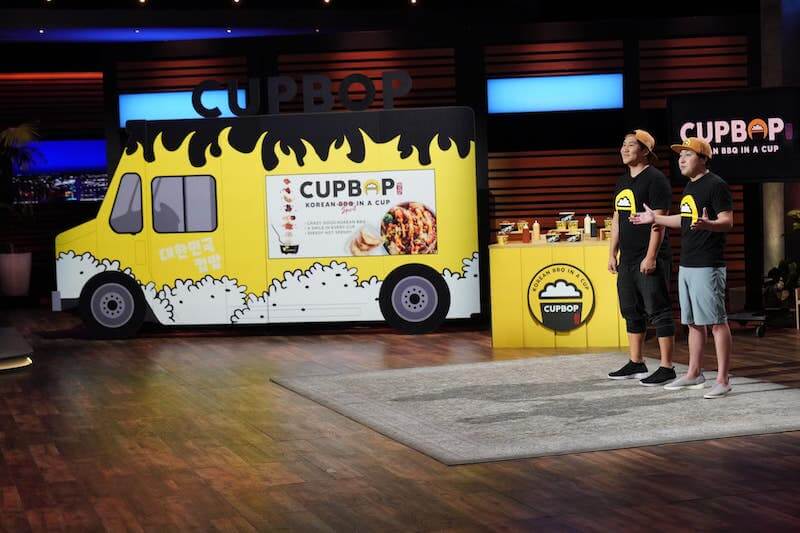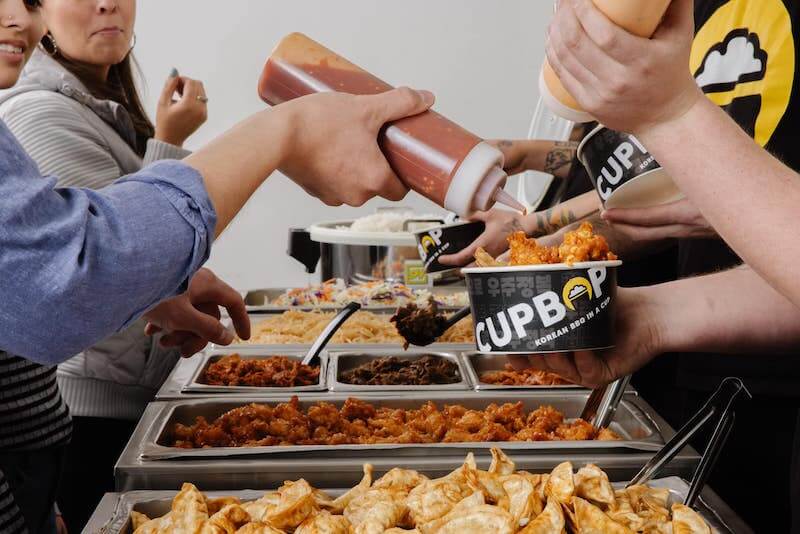Jung Song, originally from South Korea, was a marketing professional in the restaurant industry in Salt Lake City, Utah. At a food convention, he saw cuisines from cultures around the world—but not from Korea. He did not like that people were missing out on knowing how flavorful Korean food is and on learning about the colorful culture. Not long after the convention, he attended a meeting at the University of Utah, and that was the first time he had ever seen food trucks. It didn’t take him long to make the connection. Two of his friends from South Korea, J K Kim and J Park, were also living in Utah, and the three got together to establish Cupbop. They started with one food truck that expanded into a fleet of trucks, then they established brick-and-mortar restaurants that spread into surrounding states (and Indonesia), until Cupbop became a multi-million dollar business.

Cupbop Menu
The Cupbop menu is exotically flavorful, healthy, affordable and fresh. “Bop” is Korean for “steamed rice.” Cupbop is steamed rice served in a cup, along with cabbage, sweet potato noodles, a protein of choice and one of their specialty sauces that range from sweet (#1) to fiery (10).
The menu is based on the Korean BBQ the trio ate while growing up in South Korea. Then they integrated sauces that were more familiar to Americans. Each cup features, or combines, beef, chicken, pork, vegetables, or tofu.
Some of the Cupbop selections:
- Rock Bop: Tangy fried chicken
- B Bop: BBQ beef
- Hot Bop: Spicy BBQ pork
- Doochi Bop: Vegetables and fried tofu
- Veggie Bop: All vegetables
- Mandoo Bop: Deep-fried pot stickers

Cupbop Team Demonstrates Their Appreciation
“Deom” (pronounced “dumb”) means “giving extra love” in Korean. The Cupbop team gives extra love when they prepare the meals, when they happily share their Korean culture, and when they contribute so generously to the community, particularly in educational endeavors.
- They established a scholarship at the University of Utah and add to it regularly.
- They park food trucks at homeless shelters during the holidays and serve free food.
- They provide free food and prizes to educators at public schools. About once a quarter, they show up at an area school and provide lunch for all teachers and staff.

